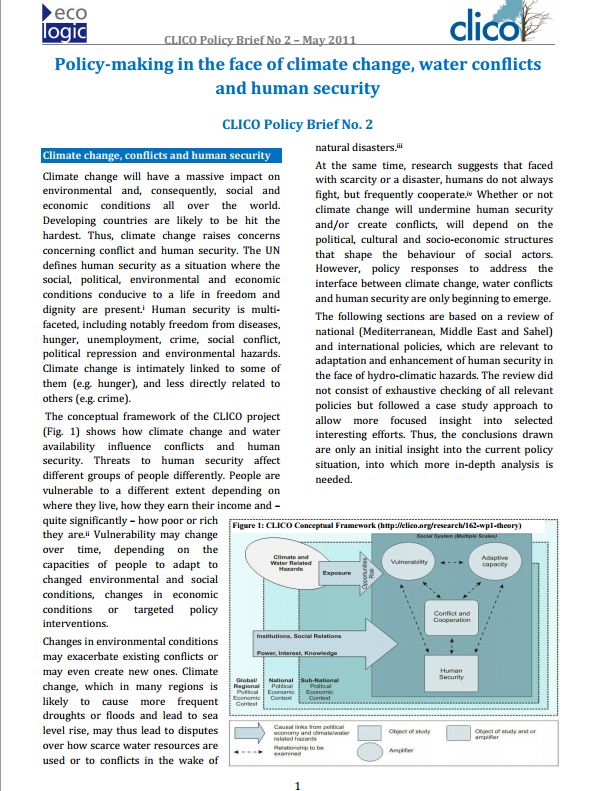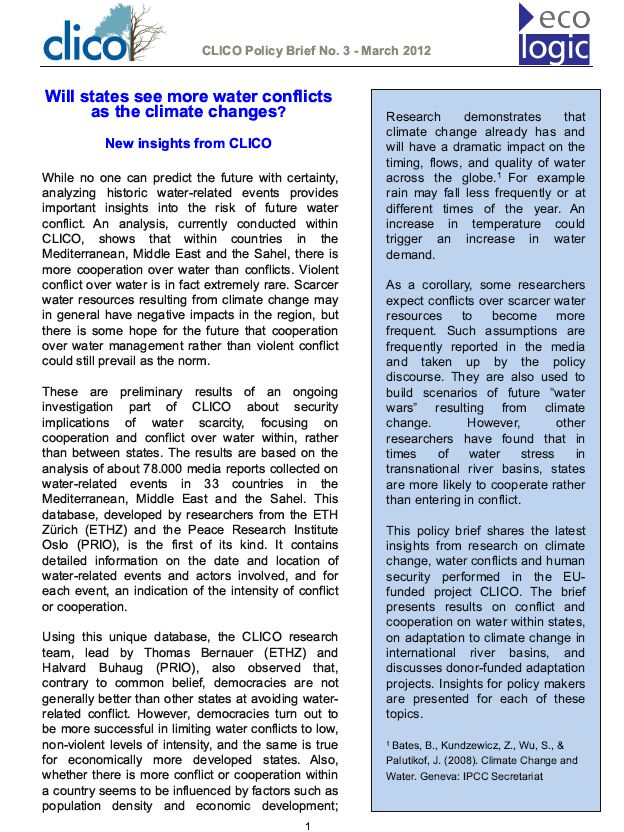Policies that address the interface between climate change, water conflicts and human security
- Presentation
- Date
-
- Location
- Addis Ababa, Ethiopia
- Speech
As part of the symposium "Climate Change Adaptation, Water Management, and Human Security", Ecologic Institute's Rodrigo Vidaurre held an introductory presentation and chaired a round-table discussion on policy responses for adaptation to Climate Change in Ethiopia. Ethiopian policy experts coming from varied scientific and organisational backgrounds, as well as researchers from the CLICO project partners Tyndall Centre for Climate Change Research and Addis Ababa University, participated in this roundtable. Its main aim was to identify possibilities for improving policy design and implementation in views of the large challenges that adapting to Climate Change poses to Ethiopian society.
The Symposium was held as part of CLICO, an EU-funded research project dealing with the relationships between Climate Change, conflicts related to water resources, and human security. Ecologic Institute is working on current and future policy responses that address these issues (for interim results click here).
Rodrigo Vidaurre chaired the roundtable at the start of his research stay in Ethiopia, in which he conducted in-depth interviews with varied policy actors coming from relevant national and international organisations. Similar research trips were recently carried out by Ecologic researchers Christiane Gerstetter (Palestinian Territories) and Haran Bar-On (Israel).
Adaptation to Climate Change in Ethiopia is complexly intertwined with the issue of the country's development, as well as with other environmental problems. It poses special challenges due to the fact that over 80% of the population depends on rainfed agriculture for their livelihoods. Although Ethiopia is still one of the Least Developed Countries (LDCs), the last years have seen sustained double-digit growth rates which are rapidly changing the face of the country.
Economic development is seen as a key means to increase the population's resilience to Climate Change, but some of the government's approaches to development, such as the support of large-scale agri-business (sometimes termed "land grabs") have come under criticism for their disruptive effects on parts of the population.






